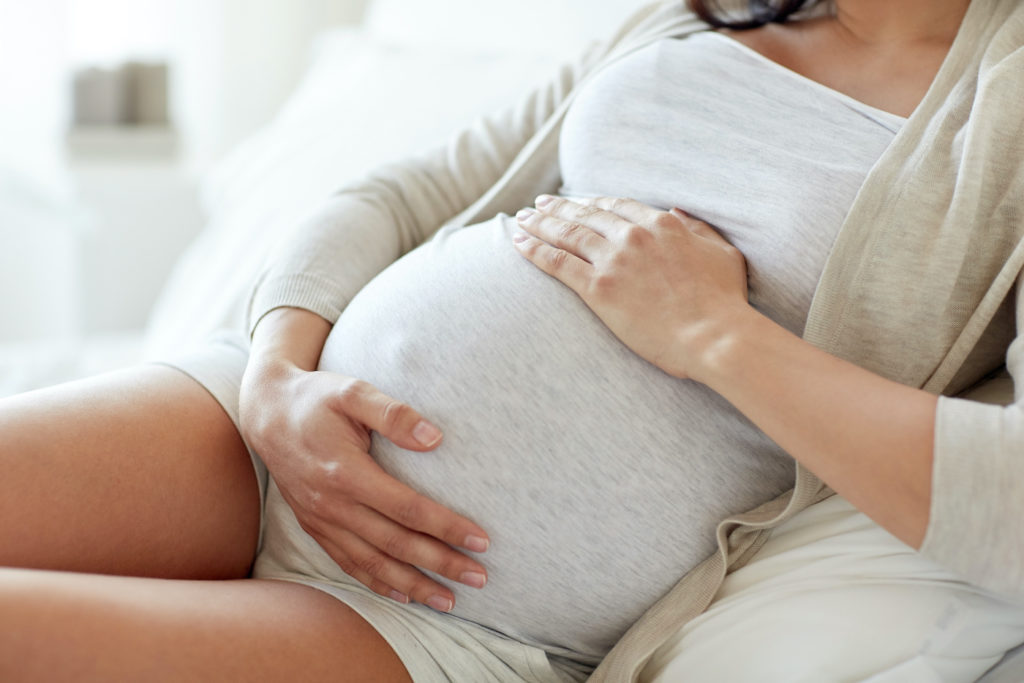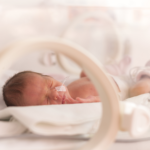American Jews are some of Roe v. Wade’s loudest and most spirited defenders. One rabbi, for example, recently called a new Texas state law limiting access to abortion “a danger to our community” that “is forcing fundamentalist Christian beliefs on the many who do not share” them. Many Jews fear that reversing Roe would (aside from inflicting suffering on vulnerable women) erode their cherished freedoms as a religious minority.
With significant changes to abortion jurisprudence probably on the horizon as the Supreme Court has agreed to consider overturning Roe this year, it is worth exploring why such fears are baseless. But even more important, it is imperative to explain why overturning Roe is an important and positive development for American Jews—regardless of their convictions regarding abortion. American Jews should feel reassured by an examination of the full and accurate picture of the broader consequences of overturning Roe, the benefits of which which especially redound to the advantage of religious minorities.
No one expects pro-choice advocates to cheer Roe’s reversal. But after examining the likely negative consequences of perpetuating what we call the judicial status quo—the choice to leave abortion regulation to courts rather than legislatures—relative to the advantages of reversing Roe in favor of a federalist solution, pro-choice Jews should be more comfortable with the idea of a post-Roe world.
Before developing the benefits of overturning Roe more fully, which we will do in tomorrow’s essay, let us first address common concerns voiced by Jewish supporters of the Roe regime and the judicial status quo.
Start your day with Public Discourse
Sign up and get our daily essays sent straight to your inbox.Reversing Roe Will Not Lead to the Outcomes that Many Pro-Choice Jews Fear
Some Jewish groups have argued that Roe must be upheld because, in some instances, Jewish women might have a religious obligation to have an abortion. As one of us has previously written on this site, “there is widespread acceptance,” even among Jews who take a more restrictive view of the matter, “that abortions are allowed when necessary to save a mother’s life.” Some Jews regard this allowance as a requirement, which gives rise to a religious obligation to have an abortion in some rare circumstances. As is true in many instances, Judaism does not speak with one voice on this issue. The authors’ beliefs are summarized in the article linked above, but we do not seek here merely to address people who share those views. Instead, we address those who believe that Judaism requires abortion to save a mother’s life or to protect her health, and that such a requirement necessitates the near-unlimited right to abortion provided by Roe and Planned Parenthood v. Casey.
Based on their view of what Judaism allows or even requires, such groups claim that the Supreme Court must maintain a broad right to abortion to protect Jewish women’s religious liberty. Taken on its own terms, this argument is misguided in a number of ways.
Jewish women in New York or other predominantly liberal states will not wake up the day after Roe is reversed to find abortion illegal in their state. If the Supreme Court overturns Roe and holds that there is no constitutional right to abortion, abortion will not become illegal nationwide. Instead, each state will set its own abortion policy democratically, based on the desires and needs of its population.
States with large Jewish populations such as New York, New Jersey, and California are not likely to restrict abortion any more than they currently do. As long as majorities in those states support liberalized abortion policies, abortion will remain accessible. In fact, some of those states have already passed laws spelling out how they will protect access to abortion if Roe is reversed. Jewish women who live in those states or who could readily travel to those states would not find their access to abortion restricted merely because Roe was reversed.
While proponents of a right to abortion may dislike the fact that other communities choose to restrict abortion, the principles of federalism and subsidiarity may actually provide them opportunities to obtain a more secure and expansive right in their own communities. When such a right is democratically enacted, it is not subject to the whims of a nine-member Court whose appointees, empowered by Roe to set abortion policy, are as likely to curb abortion rights as they are to expand them.
Even women who live in states with “strict” abortion regulations would be unlikely to face a conflict between their religious mandates and abortion regulations.
First, studies—including those conducted by the pro-legalized-abortion Guttmacher Institute—consistently find that abortions performed due to serious health concerns are rare. Second, even “restrictive” abortion laws contain exceptions that would prevent such a conflict. In fact, the Mississippi law that the Supreme Court is reviewing this year contains an exception allowing an abortion to occur to protect a mother’s life or health. It is very unlikely that a woman who is obligated to obtain an abortion under any commonly-held understanding of Jewish law would be prohibited from doing so by state laws in a post-Roe world.
While proponents of a right to abortion may dislike the fact that other communities choose to restrict abortion, the principles of federalism and subsidiarity may actually provide them opportunities to obtain a more secure and expansive right in their own communities.
While we are discussing the women’s-health implications of abortion policy, it is worth noting that the claim that thousands of women per year died of illegal abortions before Roe—and that anything that pushes abortions underground is therefore contrary to the Jewish value of prizing life—is a lie. In fact, the Washington Post named it one of the “biggest Pinocchios of 2019.” The Washington Post cites the CDC’s records, which show that “in 1972, the number of deaths in the United States from legal abortions was 24 and from illegal abortions 39.” Bernard Nathanson, a former head of the National Association for the Repeal of Abortion Laws, admitted to falsifying the inflated statistic in order to argue in favor of legalized abortion. The canard that American history demonstrates that restricting legalized abortion access would imperil the lives of thousands of women is simply untrue.
Roe Is Not Necessary to Protect Jewish Women’s Religious Liberty
In the unlikely event that a genuine conflict were to arise between an abortion regulation and a Jewish woman’s religious obligation to have an abortion, the proper course of action would be for her to seek an individualized accommodation, not to demand a religious veto over any law that conflicted with her faith.
Religious liberty protections do not allow adherents to veto generally applicable laws or to force a state to adopt their theological position. When a court holds that a Jewish inmate has the right to kosher food or that a Muslim police officer has the right to wear a beard, that ruling does not prevent the prison or the police force from applying its regular rules to everyone else. Religious liberty laws allow religious adherents to flourish in America while also allowing the majority to govern itself and to pursue its chosen goals.
If a Jewish woman raised a genuine conflict between her faith and an abortion regulation, she would be entitled to seek an accommodation just like any other religious objector. Judges are more than capable of ruling on such cases in an expedited manner when necessary. Once a woman demonstrates that she has a sincere religious objection, the burden would shift to the state to demonstrate that it has a compelling governmental interest in enforcing the law and no other means for advancing that goal.
This is true even under the standard the Supreme Court set out in Employment Division v. Smith, a case regarded as unfriendly to religious liberty. In that case, the Supreme Court held that “generally applicable” laws are exempt from the litigation framework described above (known as “strict scrutiny”). However, as we previously noted, every abortion law that is actually contemplated by any state contains, at the very least, an exception for cases in which a mother’s life is in danger. The Supreme Court recently held that laws containing any secular exception are not considered “generally applicable,” and therefore the government must pass strict scrutiny before denying an exception for religious reasons.
That test, which is skeptical of the state but grants individual accommodations rather than religious vetoes, is the proper and long recognized way for states to protect simultaneously both the public interest and individuals’ religious consciences in a pluralistic democracy like ours.
If a Jewish woman raised a genuine conflict between her faith and an abortion regulation, she would be entitled to seek an accommodation just like any other religious objector.
Two recent examples demonstrate how this works. In Holt v. Hobbs, the Supreme Court applied strict scrutiny in granting a Muslim prisoner the right to wear a beard while in prison. The Court did not entirely strike down the prison’s grooming policy. It simply held that the prison failed to demonstrate that applying that policy to Mr. Holt against his religious objections was necessary to further a compelling interest. The prison was free to pursue its interest in promoting security by applying its grooming policy to all the other inmates. This protected the religious objector without unnecessarily burdening the prison.
Similarly, in Hobby Lobby v. Burwell, the Supreme Court held that the Department of Health and Human Services (“HHS”) could not enforce Obamacare’s contraceptive mandate against religious objectors because it had alternative methods for achieving its interest in increasing access to contraceptives. The Court did not prevent HHS from enforcing the mandate against the rest of the country. HHS was free to pursue its interest through its chosen means when not dealing with a religious objector.
These cases strike the proper balance between protecting religious observers and allowing a political community to achieve its chosen goals. Those who support Roe in the name of religious freedom, giving religious minorities a veto over entire political communities, implicitly endorse the sort of theocratic overreach that the very same Jewish groups demanding it in the abortion context would never tolerate elsewhere.
Jewish pro-choice advocates are free to argue that their understanding of science or religion leads them to believe that abortion is justified, but they deserve little credence inasmuch as they attempt to rewrite the arguments of their opposition.
Abortion Regulation Has Nothing to Do with Christian Theocracy
Finally, the claim that anti-abortion legislation can only be rooted in a Christian understanding of human life is specious. Embryology textbooks consistently explain that a distinct living human organism comes into existence at conception. It is completely rational using purely secular logic, and within the realm of regular state powers, for a state to choose to protect that human life. Legislators and abortion opponents consistently explain their interest in restricting abortion in secular terms. Jewish pro-choice advocates are free to argue that their understanding of science or religion leads them to believe that abortion is justified, but they deserve little credence when they attempt to rewrite the arguments of their opposition.
In this essay we explained why several commonly expressed fears regarding a post-Roe world are either overblown or outright false. Pro-choice advocates may prefer the judicial status quo, which by removing abortion policy from public debate frees them from having to justify or defend the position that abortion should be permitted nationwide at nearly all times. However, their fears—often loudly shouted or written in extreme language—are unfounded.
It is with that conclusion in mind that we ought to weigh the Jewish argument for the judicial status quo against its alternatives. In tomorrow’s essay, we consider the other side of the equation and discuss the ways that overturning Roe will offer powerful benefits to religious minorities. A sea change in American governance, featuring a shift of power from unaccountable and centralized institutions to subsidiary democratic institutions, would benefit religious minorities in underappreciated ways.














